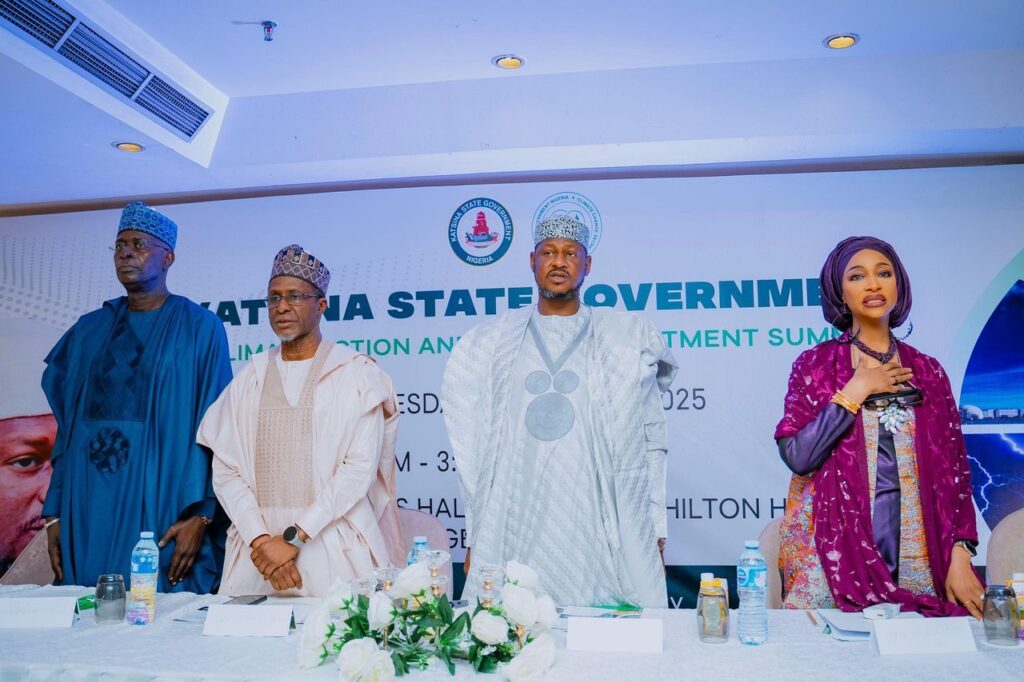The Minister of Art, Culture, Tourism and Creative Economy, Hannatu Musa Musawa, has emphasized the critical role of the creative economy in tackling climate challenges and unlocking development opportunities in Katsina State.
Speaking at the Katsina State Climate Action and Green Investment Summit in Abuja, the Minister highlighted the state’s unique climate-related challenges—including desertification, water scarcity, and unpredictable rainfall—which threaten agriculture, livelihoods, and food security.
She stressed that by embracing creativity and innovation, particularly through the creative economy, Katsina can chart new pathways to sustainable development, job creation, and social progress.
Musawa outlined several ways the creative economy can contribute to climate solutions, including raising awareness through art and media, developing sustainable fashion and textiles, promoting renewable energy solutions, and leveraging eco-tourism and cultural heritage tourism.
“The creative economy has the potential to be a powerful force in addressing some of our most pressing environmental issues,” she said.
“One of the key roles of the creative industries is to educate and raise awareness. The power of storytelling, film, music, and visual arts can play a transformative role in communicating the urgency of climate action. Through documentaries, songs, performances, and visual art, we can engage communities, inform them about the risks posed by climate change, and inspire them to take action.”
She also advocated for the use of eco-friendly materials and sustainable practices in fashion to reduce environmental degradation and celebrate cultural identity.
“We can use our local textiles to create a fashion industry that not only celebrates our cultural identity but also helps combat climate change by reducing its environmental footprint.
“By investing in training and innovation in the fashion sector, we can create jobs for our youth—particularly women—and position Katsina as a leader in sustainable fashion in Nigeria.”
Musawa called for strong partnerships between government, the private sector, NGOs, and local communities to implement climate solutions. She urged all stakeholders to approach climate change with creativity and passion to build a sustainable future for the state.
In his remarks at the summit, Katsina State Governor, H.E. Dikko Umar Radda, acknowledged the state’s climate challenges and called for collective action to transform adversity into opportunity.
He highlighted Katsina’s ongoing climate initiatives, including irrigation projects, solar-powered boreholes, and large-scale tree planting efforts. He also unveiled the Katsina State Green Growth Agenda (KAGGA), a comprehensive roadmap for sustainable development based on four pillars: Climate-Smart Agriculture, Renewable Energy Leadership, Ecosystem Restoration, and Green Industrialization.
The governor called for collaborative partnerships with investors, development partners, and communities to realize the goals of KAGGA. These include planting 10 million trees, establishing climate-resilient farming cooperatives, and promoting green industries.
“KAGGA is a roadmap to harmonize economic progress with ecological preservation,” he said.
“Through Climate Action Cooperatives, our administration will annually train 15,000 women and youth in green skills. From solar engineering to sustainable forestry, we will ensure no one is left behind. The green economy could create over 50,000 jobs in Katsina by 2030, and we are determined that our young people will be prepared to fill them.”















